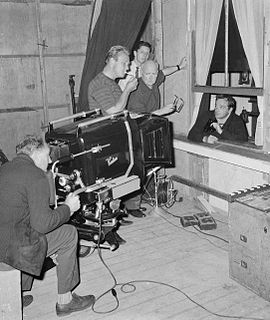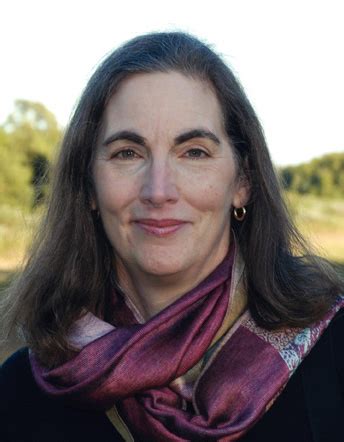Цитата Стефана Меррилла Блока
До того, как я опубликовал свою первую книгу, я какое-то время работал оператором документальных фильмов и свадеб/бар-мицвы, и часть меня до сих пор скорбит о потерянном режиссере, которым я никогда не стану. Работа над документальным фильмом — это практически противоположный художественный процесс написанию: как писатель вы всегда пытаетесь заполнить мир, чтобы он соответствовал вашей истории, но как документалист ваша работа заключается в том, чтобы вырезать историю из мира. Иногда, когда я чувствую себя особенно заблокированным за своим компьютером, я скучаю по дням, когда я мог просто навести камеру на что-нибудь интересное и подождать, чтобы увидеть, что произойдет.
Темы цитат
Всегда
Всегда Пытаюсь
Художественный
Художественный Процесс
Бар
-
Мицва
Перед
Блокировкой
Книга
Камера
Вырезать
Компьютер
Может
Дни
Документальный
Фильм Чувство
Заполнить
Кинорежиссер
Первая
Подгонка
Бывает
Интересно
Просто
Потерял
Меня
Мицва
Почти
Никогда
Противоположность Из
Части
Особый
Точка
Процесс
Опубликован
Посмотреть
Что-то
Что-то Интересное
Иногда
Еще
История
Попытка
Подождать
Свадьба
Пока
Работа
Работал
Рабочий
мир
Писатель
пишет
свой
Связанные цитаты
Возможно, если и есть что-то отдаленно интересное в моем стиле письма, так это то, что чаще всего я понятия не имею, о чем будет рассказ. Иногда у меня есть нечеткое видение, или проблеск одной сцены, или персонажа. Но в основном все, что у меня есть, — это случайное первое предложение, и я следую ему, чтобы увидеть, куда оно может пойти. Для меня написание — это процесс открытия, постепенного понимания того, что происходит в истории и чем она заканчивается, что делает написание для меня интересным процессом.
Мое последнее замечание о том, как начать писать: сначала сделайте что-нибудь, хорошее или плохое, успешное или нет, и напишите об этом, прежде чем обращаться к редактору. Лучшее знакомство с редактором — это ваша собственная письменная работа, опубликованная или нет. Я путешествовал по Сибири на свои деньги еще до того, как встретился с редактором; Свою первую книгу «Сибирская заря» я написал, не зная ни одного редактора, не зная, как издать ее. Мне пришлось рискнуть жизнью в Конго, прежде чем продать свой первый журнальный рассказ. Если в вас живет бунтарский дух, вы не будете ждать приглашения, вы вторгнетесь и не возьмете заложников.
Лестер дель Рей неоднократно говорил мне, что первая и самая важная часть написания художественной литературы — это просто думать об истории. Ничего не записывайте. Не пытайтесь собрать что-либо сразу. Просто помечтайте какое-то время и посмотрите, что произойдет. Здесь нет никакого расписания, никакой мерки того, сколько времени это должно занять. Для каждой книги он разный. Но этот период размышлений, размышлений имеет решающее значение для того, насколько успешной окажется ваша история.
Для режиссера-документалиста внешний вид вещей и людей только поверхностен. Его внимание занимают смысл, стоящий за вещью, и значение, лежащее в основе человека ... Документальный подход к кино отличается от подхода к фильму-рассказу не пренебрежением мастерством, а целью, для которой это мастерство ставится. . Документарное дело такое же ремесло, как столярное дело или гончарное дело. Горшечник делает горшки, а документальный фильм — документальные фильмы.
Когда вы показываете его первые пару раз, вы просто пытаетесь заставить фильм работать, пытаетесь заставить историю течь, пытаетесь выяснить, где ваши области, где у вас достаточно дыхания, чтобы немного посмеяться. Итак, вы делаете это первые два или три показа, а затем, наконец, вы включаете фильм, и он работает, и в этот момент это 50/50 в отношении того, что смешно, а что работает. Иногда вы что-то вставляете, и оно просто умирает так сильно, что почти убивает фильм.
Так что всегда по разному. Некоторые вещи вы хотите сделать, потому что это часть, которую вы никогда не играли. Это всегда для истории. Иногда есть история, которая тебе действительно нравится, но нет части, которая тебя интересует. Иногда ты читаешь историю и говоришь: «Я мог бы сделать это. Я никогда раньше этого не делал. Я мог бы сыграть эту роль.
Именно форма, которую она принимает, когда выходит с другой стороны, конечно же, придает истории нечто уникальное — ее жизнь. История в том виде, в каком она представлена на странице, была чем-то выученным благодаря вызову истории и работе, которая поднимается, чтобы ответить на нее — процесс настолько неизведанный для писателя, как если бы он никогда не предпринимались попытки раньше.
Я думаю, что красота документальной работы в том, что это тайна — никогда не знаешь, куда она тебя приведет. Вы начинаете с некоторого представления об этом, но это сильно отличается от сценария. Сценарий, который вы пишете, по которому вы снимаете, и вы знаете, какой будет история. Всегда есть элемент неожиданности, но неожиданность исходит от исполнения, от чего-то импровизированного, от того, кто видит это в уже определенных рамках. В документальном кино это никогда не определяется. Это никогда не бывает одинаковым и предоставляет огромные возможности.
Да, у меня бывают засухи. Иногда я не могу ничего сделать в течение трех месяцев. Когда наступает один из таких периодов, я бросаю попытки работать и иду куда-нибудь посмотреть на жизнь. Вы не можете написать рассказ, в котором есть хоть какая-то жизнь, сидя за письменным столом и размышляя. Вы должны выйти на улицу, в толпу, поговорить с людьми и почувствовать спешку и пульсацию реальной жизни — это стимул для писателя-рассказчика.
Я был намного глупее, когда писал роман. Я чувствовал себя хуже как писатель, потому что я написал многие рассказы за один присест или, может быть, за три дня, и они не сильно изменились. Набросков было не так уж и много. Это заставляло меня чувствовать себя наполовину блестящим и частью магического процесса. Написание романа было не таким. Каждый день я приходил домой из своего офиса и говорил: «Ну, мне все еще очень нравится эта история, я просто хочу, чтобы она была написана лучше». В тот момент я еще не осознавал, что пишу первый черновик. И самая сложная часть была с первым наброском.
История, которую вы себе представляете, когда начинаете, всегда великолепна; когда факты оказываются отличными от того, что вы ожидали, или более сложными, чем вы ожидали, вашей первой реакцией всегда будет разочарование. Именно тогда вы должны бороться с желанием изменить историю в соответствии с вашими предвзятыми представлениями. Во-первых, это нечестно. А во-вторых, в конце концов, правда всегда лучшая история.






































